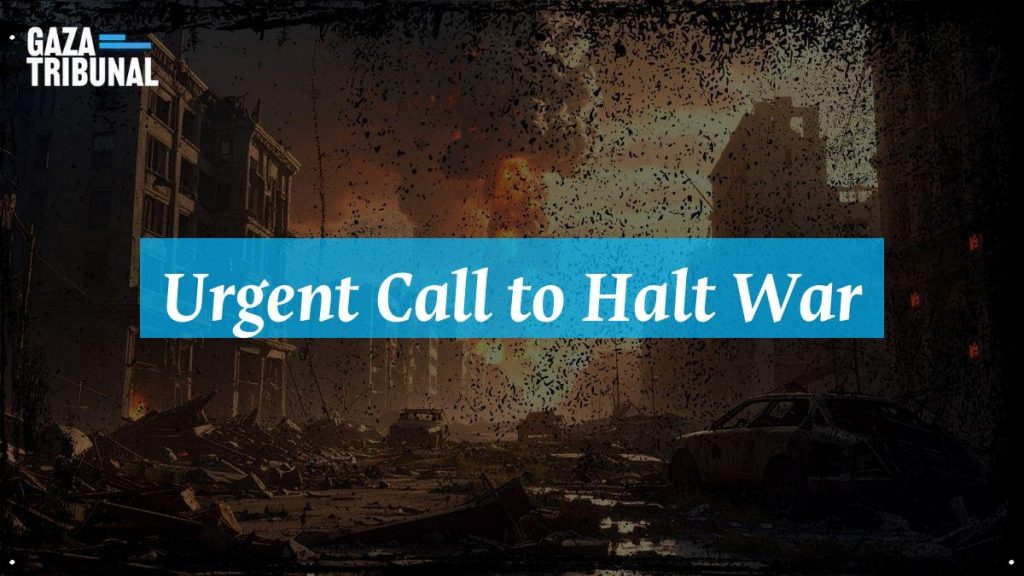In a world where the cries for justice often echo unheard, the concept of Conflict Accountability emerges as an urgent necessity. Recently, a coalition of scholars and human rights advocates has implored the United Nations to intervene in Israel’s ongoing military actions against Gaza. This call is not merely about addressing humanitarian needs; it emphasizes enforcing international law that seems to have faltered at critical moments. As Richard Falk pointed out during a press conference in Istanbul, we must confront what urgently requires our attention: the global legal system’s failure to protect vulnerable populations like those in Gaza! The Responsibility to Protect (R2P) principle was designed precisely for such dire situations but remains underutilized when most needed.
For all practical purposes, this situation compels us to recognize that symbolic gestures from nations are insufficient without tangible action behind them. While countries express support for Palestinian statehood, they simultaneously arm Israel—an incongruity that cannot be ignored if we seek genuine peace and accountability. The Tribunal’s demand highlights another dimension: how can one claim adherence to justice while ignoring its enforcement? It stands beyond serious dispute that real change hinges on recognizing these inconsistencies within our political frameworks surrounding conflict resolution and accountability measures. Ultimately, if humanity wishes for lasting peace and stability in regions plagued by violence like Gaza, then robust mechanisms must be established now more than ever before!
The Call for Action
A group of scholars and human rights advocates recently gathered in Istanbul, making a powerful plea to the United Nations. They urged the formation of an international military force aimed at halting Israel’s ongoing assault on Gaza. Richard Falk, who leads the Gaza Tribunal Project and has served as a UN special rapporteur, emphasized that global legal frameworks have failed Palestinians time and again. “Law has failed because it has not been enforced,” he stated passionately.

Falk’s remarks resonate deeply with many who feel frustrated by empty promises from world leaders. He pointed out that without real action under the Responsibility to Protect (R2P) principle, atrocities like genocide can continue unchecked. This principle emerged after horrific events in Rwanda and Bosnia; however, its enforcement remains largely symbolic rather than practical.
A New Resolution
The Tribunal is now pushing for invoking the Uniting for Peace resolution — something that allows collective action when veto powers stall progress within the Security Council. By doing so, they hope to authorize a multinational force dedicated to protecting civilians in Gaza until conditions improve significantly enough for humanitarian aid to flow freely once more.
This plan also includes provisions for internationally monitored elections following stabilization efforts! It’s ambitious but necessary if we want any semblance of peace. Authoritative voices caution that—right? Countries around the globe must step up their game instead of merely offering lip service while continuing arms sales!
Voices Crying Out
Meanwhile, life inside Gaza grows increasingly dire as political discussions unfold far away from its borders. In places like Nuseirat refugee camp families endure long waits just hoping for basic food supplies amidst unbearable heat waves—a stark reminder of what daily existence looks like there today.
Parents clutch their children tightly during air raids; fear grips them tightly each night as bombings echo through shattered streets filled with despairing cries—how much longer can this go on? Eyewitness testimonies capture these harrowing moments while building an archive documenting lived experiences—their stories matter immensely!
Justice Must Prevail
Ultimately though—it isn’t just about legal demands or lofty resolutions anymore—it’s about moral responsibility too! Falk articulated this sentiment The most prudent courses in: “If we believe in law,” he said firmly,“then it must protect those who have no power.” His words strike at our conscience urging us all toward accountability beyond mere rhetoric alone.
Justice needs presence where suffering occurs—not confined solely within dusty pages or formal documents gathering dust somewhere unseen! And right now—that place is undeniably *Gaza*. We cannot turn away from such urgency; let us take action together before it’s too late! For more information on this crucial topic, see the source link here.
Thank you sincerely for taking time out today—to reflect upon these pressing issues facing humanity right now! Your awareness could help spark change where needed most urgently.
Gaza News


